David Kremer, MD

Immunoglobulin dependent regulation of neural stem cell differentiation
A number of beneficial effects have been attributed to immunoglobulins, among them the promotion of remyelination in different animal models of demyelination. This repair activity may not primarily be a consequence of immunomodulation, but could be due to direct interactions with resident myelinating glial (precursor) cells. This is an important observation as it suggests that IVIG treatment could be used to affect many more cell types implicated in neurological diseases.
The aim of Dr Kremer's project is to reveal whether immunoglobulins, either as intrinsic components of inflammatory demyelinating diseases or when applied in therapeutic context (IVIG), can influence and regulate the differentiation of resident adult neural stem cells (NSC). NSCs are important in many pathophysiological conditions, contributing to neuronal as well as glial cell replacements.
Investigations will include analysis of Fc receptor expression on adult NSCs using immunohistological staining. Fc receptor expression and regulation will also be analysed using RT-PCR and immunocytological staining in cultured adult NSCs under controlled differentiation. Differentiation of the adult NSCs will then be examined following immunoglobulin stimulation, and marker proteins (GFAP, beta-tubulin, GalC) will be used to determine cellular fate. Stem-cell markers will be used to observe whether a stem-cell maintenance effect occurs. Finally, expression and regulation of regulatory factors will be assessed.
This is an important area of investigation; since not only resident oligodendroglial progenitor cells but also stem cells can successfully contribute to myelin repair, it remains to be shown to what degree they respond to immunoglobulin exposure. This applies for both endogenous immune related molecules during inflammation as well as exogenously applied preparations, such as IVIG. In order to reveal to what extent immunoglobulins are involved in stem-cell activation and endogenous-cell replacement, stem-cell determination and differentiation has to be challenged under specific humoral immune conditions analyzing IVIG treated cells and their fate.
Curriculum vitae of David Kremer
Dr. Kremer received his undergraduate training at the University of Düsseldorf, at Mount Sinai School of Medicine, New York and at Harvard Medical School, Boston as a scholarship holder of the National German Merit Foundation. After graduation as MD in 2008 he started working as an assistant physician in the Department of Neurology at the University of Düsseldorf where he completed his doctoral thesis entitled "p57kip2 is dynamically regulated in experimental autoimmune encephalomyelitis and acts as a negative regulator of oligodendroglial maturation" receiving the mark "summa cum laude". During his undergraduate training, Dr. Kremer began working in the field of Multiple Sclerosis. He is currently carrying out his postdoctoral research specializing in glial cell behaviour focusing on mechanisms of oligodendroglial differentiation failure in neuroinflammatory settings. Since 2008 he has authored or co-authored several articles in peer-reviewed journals and has received the Young Investigator Award of the European Charcot Foundation.

